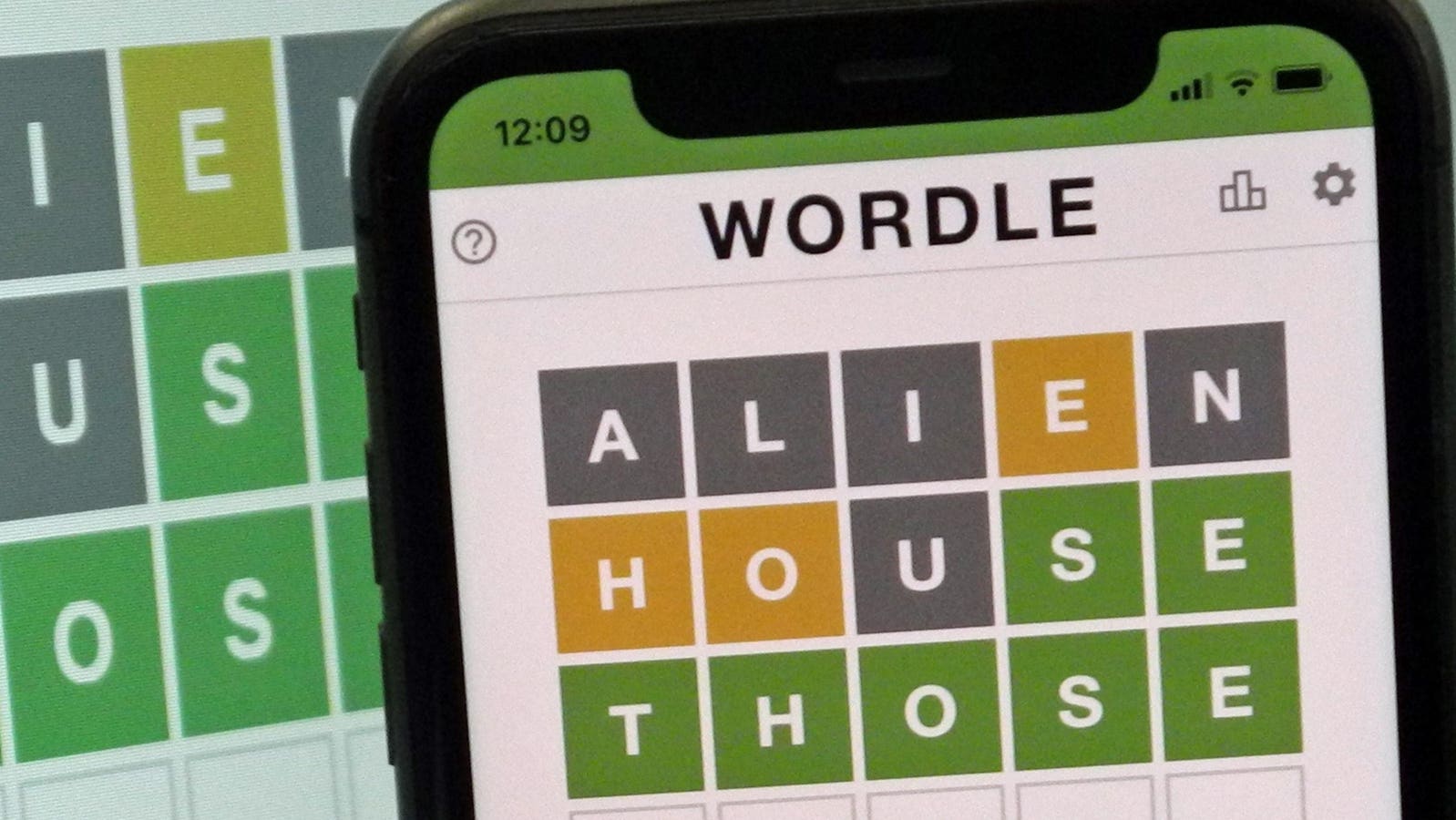A mobile phone shows the screen of the popular online game Wordle which has been bought by The New … [+] York Times Company from its creator, US-based software engineer Josh Wardle. Picture date: Tuesday February 1, 2022. (Photo by Nick Ansell/PA Images via Getty Images)
Sunday, lazy Sunday. I’m all for it. I’ve been feeling a bit under the weather lately so a bit of laziness sounds like just the thing.
The snow has stopped, but not before dumping a full 36” on us. It certainly feels like winter now! Lazy winter Sunday.
Oh, and it’s the Super Bowl! Super Bowl LVIII, a showdown of past champions the San Francisco 49ers and the Kansas City Chiefs. The Chiefs won the last time these two teams faced off. I’ll be . . . half-watching. Hopefully there will be some funny commercials!
Check out my streaming guide for this weekend’s other streaming options right here.
How To Solve Today’s Wordle
The Hint: Often attributed to the raven.
The Clue: This Wordle has a double letter.
.
.
.
The Answer:
Can you solve today’s phrase?
Today’s Wordle
Wordle Analysis
Every day I check Wordle Bot to see how I did. You can check your Wordles with Wordle Bot right here.
Not bad, not great. Spare is a good opening guess in general but I had lousy luck today. 202 words remained, and boink boinked that down to 10. Under left me with just two guesses and I went with the never for the win. Huzzah!
Competitive Wordle Score
A total wash today. Both I and Wordle Bot took four guesses to get the Wordle so zero points there and zero for tying. ZERO!
Today’s Wordle Etymology
The word ‘never’ comes from the Old English nǣfre, which is a combination of ne meaning “not” and ǣfre meaning “ever.” The Old English term nǣfre itself is derived from Proto-Germanic nē aiwō, which also leads to similar constructions in other Germanic languages, such as Old High German niowi, meaning “never.”
The transition from Old English to the modern English ‘never’ involved the dropping of the initial vowel sound in ǣfre and the amalgamation of the two parts into a single word. The meaning of ‘never’ has remained relatively stable over time, indicating a negation of “ever” and used to denote something that has not happened at any time or will not happen at any time in the future.

Leave a Reply